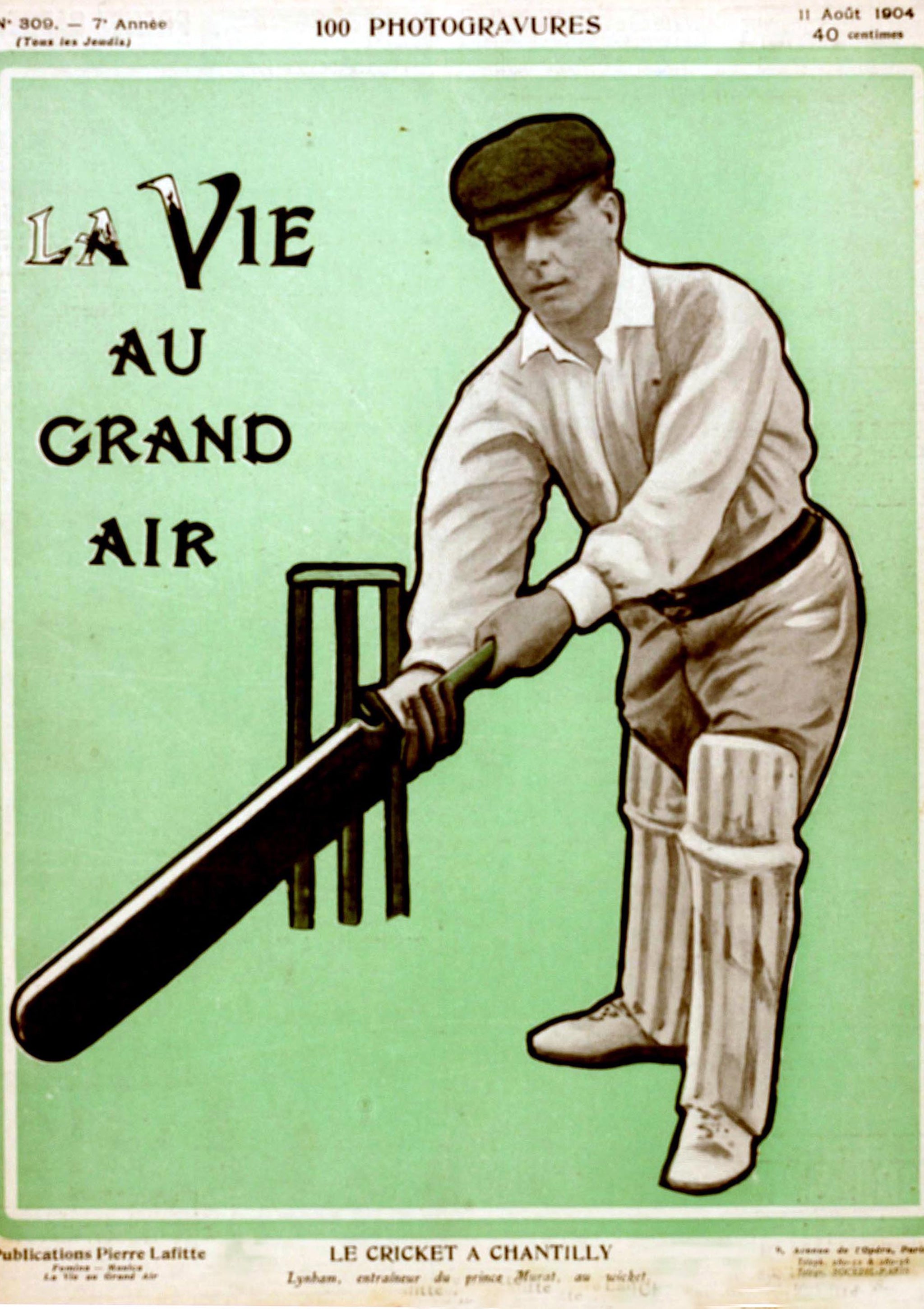French hamlet claims to be site of the first recorded cricket match
It’s as English as warm beer and village greens… but sacré bleu!

Your support helps us to tell the story
From reproductive rights to climate change to Big Tech, The Independent is on the ground when the story is developing. Whether it's investigating the financials of Elon Musk's pro-Trump PAC or producing our latest documentary, 'The A Word', which shines a light on the American women fighting for reproductive rights, we know how important it is to parse out the facts from the messaging.
At such a critical moment in US history, we need reporters on the ground. Your donation allows us to keep sending journalists to speak to both sides of the story.
The Independent is trusted by Americans across the entire political spectrum. And unlike many other quality news outlets, we choose not to lock Americans out of our reporting and analysis with paywalls. We believe quality journalism should be available to everyone, paid for by those who can afford it.
Your support makes all the difference.In 1478, at the village of Liettres in northern France, a young man called Estiavannet came across a group of disagreeable people playing an unusual game. It involved “boules” or balls and a wooden post or “criquet”.
According to a letter of grievance to the king, which survives in the French national archives, an argument broke out. One of the players said: “Why are you staring at our ball game?” There was violence. Someone was killed.
This may be the first mention anywhere of the game of cricket, almost a century before the first written record of the game in England (although there are also suggestions that an early form of the game might have been mentioned in 1300). To pursue what some might see as a heretical claim, the village of Liettres in French Flanders will stage an “international cricket tournament” next month.
This will not – or not yet – be a rival to the Cricket World Cup. A cow pasture is being prepared. There will be a series of 20-over games on 26 and 27 September between the Lille Cricket Club and teams from Ghent in Belgium and Whitstable in Kent.
In the long run, however, the village and the region hope to make Liettres (population 360) a place of pilgrimage for cricket-lovers from all over the world. For the second staging of the “Liettres 1478 Challenge” in 2016, there are plans to equip the village with France’s first dedicated cricket ground, including a proper field, batting square, pavilion and scoreboard.

“Cricket is not well known in France but the interest is growing,” said Anne Debosque, director of the tourist board for the region around Liettres, the Pays de la Lys Romane. “We hope that this tournament will attract people from England and elsewhere, and draw attention to the beauty and history of an area only a few kilometres away from the Channel tunnel.”
Philippe Dethoor, 48, is president of Lille Cricket Club and describes himself as the “first wicket-keeper ever to be born in Roubaix” (an industrial town on the Franco-Belgian border). He has been playing cricket for only eight years but became a fan of the game when he lived in London as a young man.
“Cricket as we play it today is an English creation, that is undisputed – and that’s why I love it. I am a great fan of British culture,” said Mr Dethoor. “But the mention of cricket at Liettres in the 15th century is perfectly plausible. It is believed that the game originated in Kent or possibly Flanders. Maybe by the late 15th century some form of the game had crossed the Channel from England, or maybe it was the other way around.”
From the tantalising reference in the French national archives, it is unclear precisely what game was being played at Liettres in October 1478. The old French text informs King Louis XI of a “supplication” made by a 22-year-old man called “Estiavannet” who arrived at Liettres about “one or two hours after dinner”. He came to “a place where people were playing at boules” near to something attached to a “criquet” (the wooden post). Why the violent argument broke out is unclear.
Early histories of cricket suggest that the game may have begun as a pastime for shepherds in Kent and developed from bowls using a post, which had to be defended with a sheep crook.
This is compatible with the 1478 French account of what may be the first known cricket match – and the first cricket riot.
Mr Dethoor, one of the organisers of the Liettres tournament, admits that late September is a risky time to hold a two-day cricket event in the Pas de Calais. “The problem was fitting it into the French holiday schedule and the fixture list of the clubs,” he said. “We are praying for fine weather.”
France has been slow to appreciate the glories of cricket in recent centuries but interest is growing. There are 1,000 registered cricketers and 30 clubs in a national league with three divisions. The French national team’s players are mostly of south Asian or English origin. Mr Dethoor points out, however, that almost half the players on his own Lille team are, as he is, French. There is also a handy book which gives official French translations of cricket terminology, Les Lois du Cricket.
Did you ever wonder what the French might be for deep backward square leg? The answer is “Barrière oblique côté fermé”. An off-spinner is “un tricoteur” or “knitter”. A leg-spinner is a “tournicoteur” or “prowler”. And a wicket maiden is “une vierge couronnée” (a crowned virgin).
Join our commenting forum
Join thought-provoking conversations, follow other Independent readers and see their replies
Comments